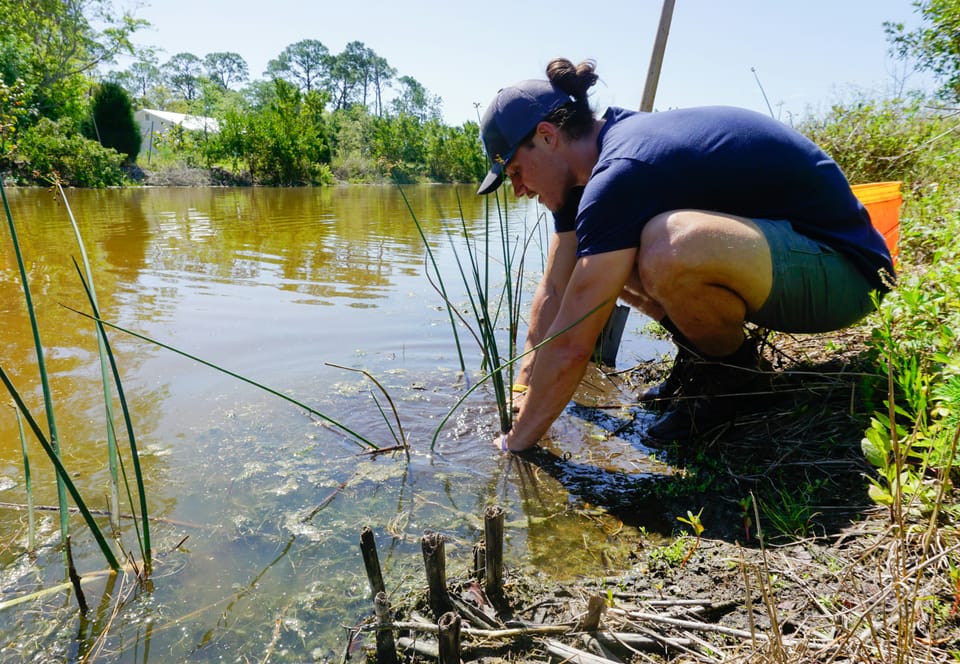Is the Nature Restoration Law facing the same fate as CSDDD?

The EU’s Nature Restoration Law is heading towards renegotiations and a potential reduction in scope after a sudden change of heart from certain member states forced the European Council to postpone its approval.
In a déjà-vu of what happened over the last couple of months around the Corporate Sustainability Due Diligence Directive (CSDDD), member states who had previously supported the current draft of the Nature Restoration Law made a U-turn just days before its planned approval in the EU Council.
The law, which aims to restore at least 20% of the EU’s land and sea areas by 2030 and “all ecosystems in need of restoration” by 2050, was approved by the European Parliament at the end of February, after months of negotiations.
But last week, as the bill was scheduled to be approved in the Council, a group of seven member states announced that they would vote against it – including Hungary, despite the fact that it had supported it in the Parliament vote.
Now Belgium’s Prime Minister Alexander De Croo has told reporters that the law needs to “go back to the drawing board” after June’s EU Parliament elections – suggesting that unlike the CSDDD, on which member states have managed to reach a new agreement, it’s too late to get the Nature Restoration Law over the line in this parliamentary cycle.
New dynamics in EU political landscape
The Nature Restoration Law has received broad support from Chief Sustainability Officers and large corporations with nature-dependent supply chains – including Nestlé and Unilever. But it always caused concerns for European farmers, who worried about its lack of clarity and the added red tape it could represent.
In February, the European People’s Party had already decided to vote against the bill in Parliament, citing growing farmer discontent. “We do not want new and more forms of bureaucracy and reporting obligations for farmers. Let farmers farm,” said MEP Siegfried Mureșan, Vice-Chair of the EPP Group in charge of budget and structural policies.
But Hungary’s last-minute U-turn, similar to Germany and Italy’s sudden change of heart on corporate due diligence just as CSDDD was headed for a vote, reflects new political dynamics and a recent weakening of the EU’s lawmaking process at a crucial time for the delivery of the EU Green Deal.
How should Chief Sustainability Officers prepare for the Nature Restoration Law?
According to Oliver Carpenter, Director of Environmental Risk Analytics at climate risk analytics firm Risilience, Chief Sustainability Officer would benefit from the regulatory certainty the Nature Restoration Law would provide: “Having the certainty of stringent regulation is always good if you are a global leader and you have the resources and the interest to show leadership in this space,” he told CSO Futures in November.
With June’s European elections expected to result in a turn to the right and the EU Presidency moving to Hungary in July – a move that worries MEPs due to the country’s recent violation of EU treaties – the future of law is even more uncertain than CSDDD’s appeared last month.
For CSDDD, member states ended up agreeing to reduce the scope of application of the law to just over 5,000 companies (instead of 16,000 originally), but the Nature Restoration Law still lacked this level of detail – so it's unclear which aspects of the law negotiators would be looking to revisit.
But regardless of the political landscape, nature protection and restoration is becoming an increasingly important part of the corporate sustainability agenda. CSOs and sustainability leaders can draw inspiration from effective Scope 3 emissions management strategies to engage their supply chains on nature.
Emily McKenzie, Technical Director at the Task Force on Nature-Related Financial Disclosures, advises Chief Sustainability Officers to “get started” by applying the TNFD’s recommendations. “There is no reason to delay. The overall objective is not to perfect something now, but to begin a process whereby, year on year, the disclosures expand and improve and provide better insights on nature-related dependencies, impacts, risks and opportunities.”







Member discussion